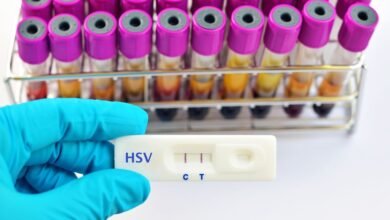Can a Vasectomy Cause Erectile Dysfunction? Exploring the Link Between Vasectomy and ED
The decision to undergo a vasectomy, a surgical procedure for male sterilization, is often influenced by factors such as family planning and contraception. However, concerns about potential side effects, particularly erectile dysfunction, have prompted many men to question the safety and long-term implications of vasectomy. In this article, we address these concerns by examining the relationship between vasectomy and erectile dysfunction, shedding light on the misconceptions and providing evidence-based insights into this controversial topic.
What is Erectile Dysfunction?
Erectile dysfunction, commonly referred to as ED, is the inability to achieve or maintain an erection firm enough for sexual intercourse. It can have various causes, including physical, psychological, and lifestyle factors. While ED is often associated with aging, it can affect men of all ages and may have a significant impact on quality of life and intimate relationships.
What is a Vasectomy?
A vasectomy is a surgical procedure that involves cutting or blocking the vas deferens, the tubes that carry sperm from the testicles to the urethra. By interrupting the flow of sperm, a vasectomy prevents pregnancy and serves as a permanent form of contraception. The procedure is typically performed under local anesthesia and is considered safe and highly effective.
No Morning Wood After Vasectomy:
One common concern among men considering a vasectomy is the potential impact on erectile function, particularly the absence of morning erections, also known as “morning wood.” Morning erections are a natural physiological response that occurs during REM sleep and are not necessarily indicative of erectile dysfunction. While some men may experience changes in their sexual function after a vasectomy, the absence of morning erections alone is not a definitive sign of ED.
Can a Vasectomy Cause Erectile Dysfunction?
The question of whether a vasectomy can cause erectile dysfunction has been a topic of debate and speculation. While some anecdotal reports suggest a possible link between vasectomy and ED, scientific evidence supporting this association is limited. Several studies have investigated the potential relationship between vasectomy and erectile dysfunction, with conflicting results.
Can Having a Vasectomy Cause Problems Later in Life?
Another concern raised by men considering a vasectomy is whether the procedure can lead to complications or problems later in life. While vasectomy is generally considered a safe and low-risk procedure, like any surgical intervention, it carries a small risk of complications, including infection, bleeding, and chronic pain. However, there is no conclusive evidence to suggest that vasectomy increases the risk of erectile dysfunction or other sexual problems later in life.
Can Ejaculating Too Soon After Vasectomy Damage It?
There is a common misconception that ejaculating too soon after a vasectomy can damage the surgical site or affect its effectiveness. In reality, sexual activity and ejaculation following vasectomy are generally safe and do not increase the risk of complications. However, it is essential to follow post-operative instructions provided by your healthcare provider to ensure proper healing and optimal outcomes.
What Are the Negative Effects of a Vasectomy on a Male?
While vasectomy is a safe and effective form of contraception, it is essential to consider the potential risks and side effects associated with the procedure. Some men may experience temporary discomfort, swelling, or bruising following vasectomy, but these symptoms typically resolve within a few days or weeks. Long-term complications are rare and usually minor, with no evidence to suggest a direct link between vasectomy and erectile dysfunction.
Can a Vasectomy Cause Low Testosterone?
Another concern raised by men considering vasectomy is whether the procedure can affect testosterone levels. Testosterone is the primary male sex hormone responsible for libido, muscle mass, and overall health. While some studies have suggested a potential decrease in testosterone levels following vasectomy, the evidence is inconclusive, and any changes are typically minor and clinically insignificant.
What They Don’t Tell You About a Vasectomy?
Despite its safety and effectiveness, there are several misconceptions and myths surrounding vasectomy that may deter men from considering this form of contraception. One common misconception is that vasectomy can negatively impact sexual function, including erectile dysfunction and loss of libido. However, research indicates that vasectomy does not affect sexual desire or performance and is unlikely to cause long-term complications.
Conclusion:
In conclusion, the question of whether a vasectomy can cause erectile dysfunction remains a topic of debate and uncertainty. While anecdotal reports and individual experiences may suggest a possible association between vasectomy and ED, scientific evidence supporting this link is lacking. The overwhelming consensus among healthcare professionals is that vasectomy is a safe and effective form of contraception that does not affect sexual function or overall health. However, it is essential for men considering vasectomy to discuss any concerns or questions with their healthcare provider and make an informed decision based on their individual needs and circumstances.




